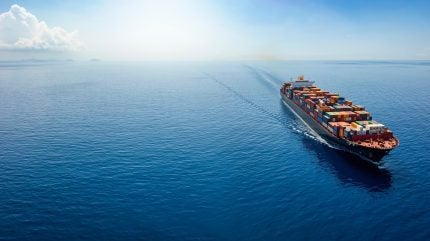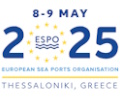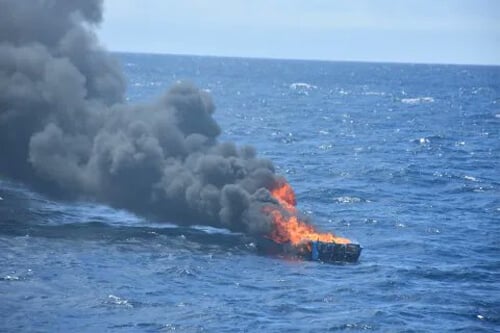£1m grant backs digital twin project to cut UK shipping emissions

A consortium has secured more than £1m ($1.35m) in funding to develop a digital twin solution aimed at reducing UK shipping greenhouse gas (GHG) emissions by up to 15%.
Consulting services company CGI is leading the consortium, in partnership with Maritime UK and Heriot-Watt University-based Industrial Decarbonisation Research and Innovation Centre (IDRIC).
Discover B2B Marketing That Performs
Combine business intelligence and editorial excellence to reach engaged professionals across 36 leading media platforms.
CGI won the UK Government grant for the initiative via its Sustainability Exploration and Environmental Data Science (SEEDS) research programme.
The project will support the UK’s Clean Maritime Plan and the government’s broader net-zero commitments.
The consortium’s MaritimeTwin prototype will leverage satellite data and digital twin technology to support route planning, fuel consumption management, and emissions tracking.
According to Heriot-Watt University’s IDRIC, the maritime sector accounts for approximately 3% of global GHG emissions. Projections suggest this share could increase to 10% by 2050 if no measures are taken.
CGI UK chief sustainability officer Mattie Yeta said: “This award enables the development of a demonstrator that leverages real-time data to deliver tangible impact across the maritime sector.
“This project addresses the urgent need for maritime decarbonisation but also strengthens the UK’s position as a leader in clean maritime technology, driving economic growth and creating high-skilled jobs in the sector.”
The project will also make use of CGI’s DataTwin360 and EcoHub platforms.
CGI said MaritimeTwin will allow shipping operators to simulate different scenarios and use real-time environmental data such as weather, ocean currents, and port conditions.
Machine-learning algorithms will enable the tool to “continuously learn” and provide “more precision”, stated CGI and Heriot-Watt University’s IDRIC.
Heriot-Watt University IDRIC director Professor Mercedes Maroto-Valer said: “The pace and complexity of pathways to decarbonisation for maritime transport demands rigorous and independent research. We are delighted to be able to leverage the expertise that IDRIC has built up over the past four years.
“The MaritimeTwin consortium will enable rapid development and deployment of a transformative solution for the maritime industry through close collaboration and access to real-world testing to accelerate commercialisation.”
SEEDS received funding through the Clean Maritime Demonstration Competition (CMDC) Round 6, an initiative from the UK Shipping Office for Reducing Emissions (UK SHORE).
CMDC Round 6 supports pre-deployment trials and feasibility studies focused on clean maritime technologies and skills that aim to lower GHG emissions.
Maritime UK chief executive Chris Shirling-Rooke said: “Maritime UK is proud to play a role in the MaritimeTwin CMDC6 project.
“Our focus is on ensuring that end users and industry stakeholders are meaningfully engaged and represented throughout the project, providing forums where they can help to shape a solution that is both technically robust and market viable. By providing a clear strategy and forums for engagement, we seek to align innovation with real-world industry needs.”
UK SHORE currently supports 500 organisations nationally, focusing on driving growth in clean maritime tech at ports and shipyards.
Innovate UK Land and Maritime Transport head Neale Ryan said: “The MaritimeTwin initiative shows what can be achieved when we rethink every part of maritime technology – from engine design to IT systems.




